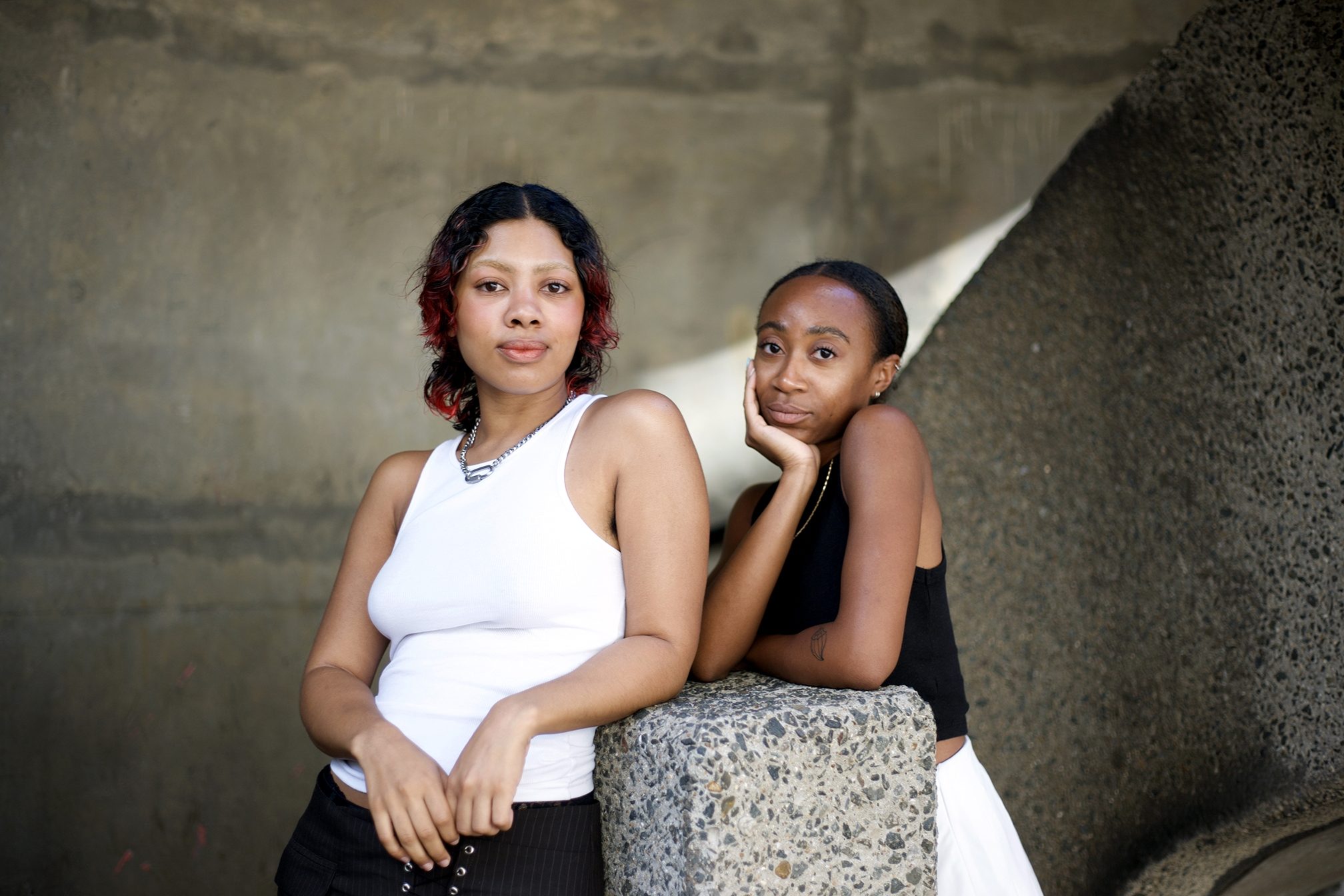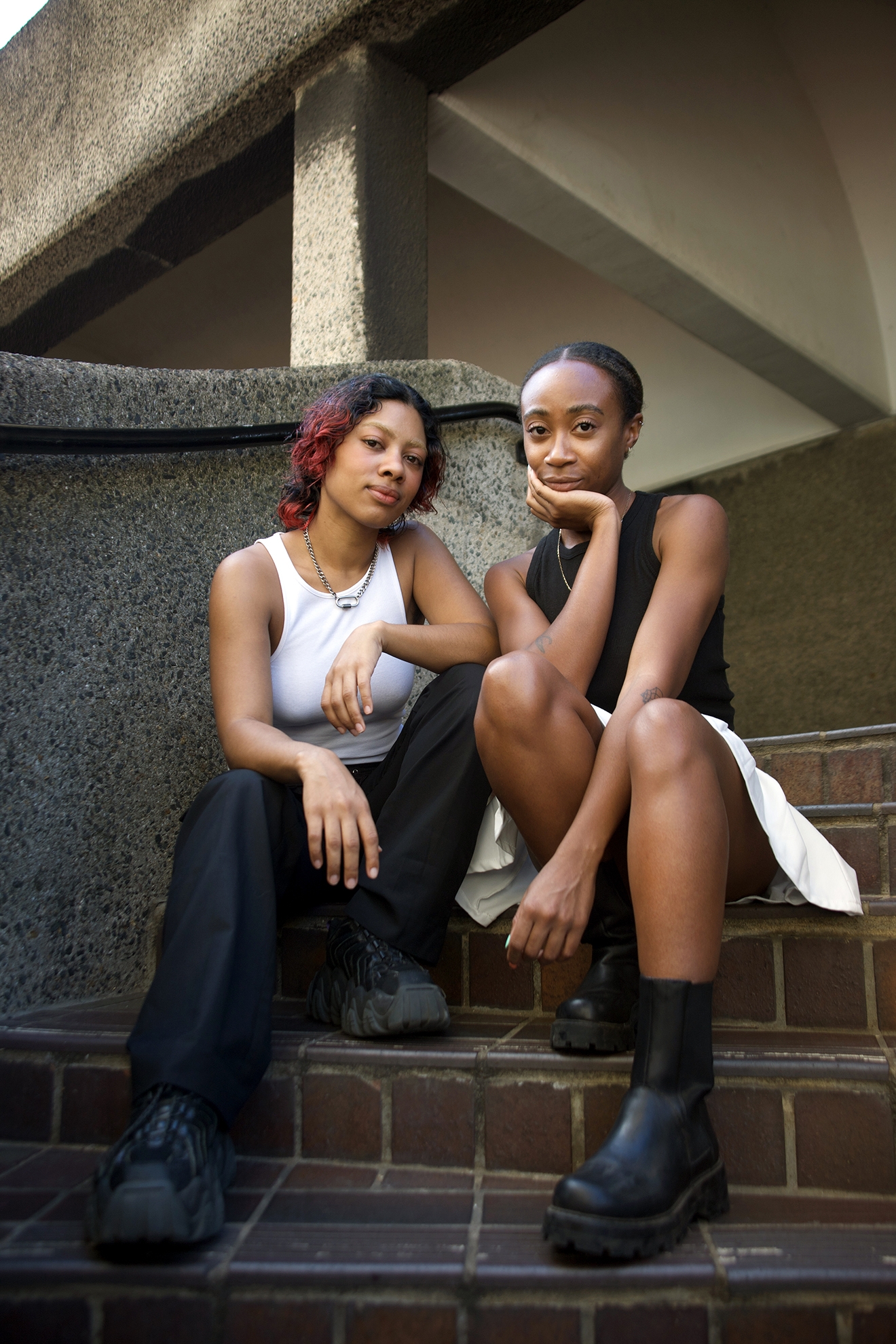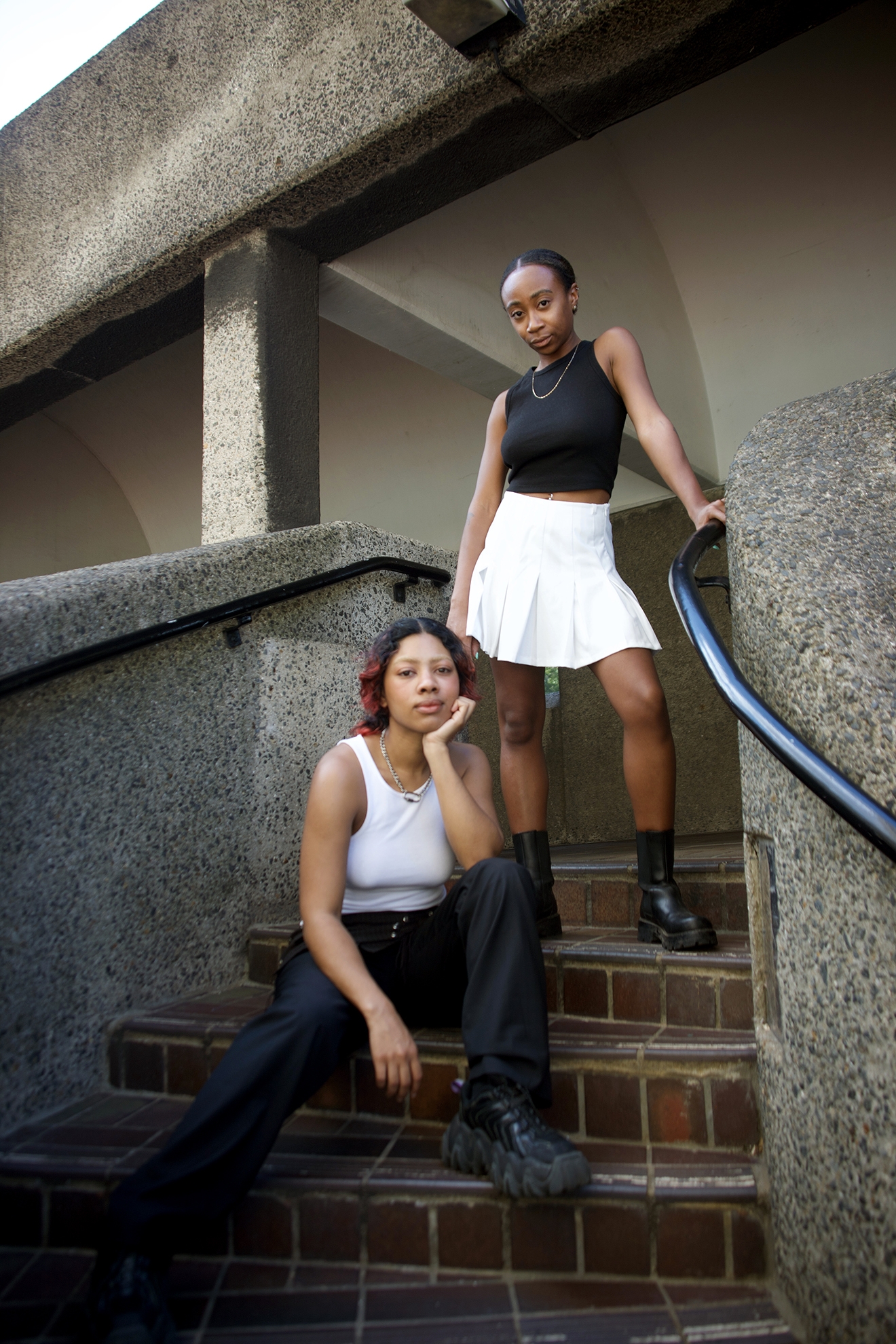 Features
Features
Autonomy, community and a vast quantity of quality music: Why B.A.D. founded a label
Shiba Melissa Mazaza speaks to NIKS and Tanya Akinola about the launch of Black Artist Database's label
Since its inception during the politically tumultuous pandemic lockdowns, Black Artist Database (formerly Black Bandcamp) has come to be known as an important global platform connecting artists across Africa and the diaspora, thanks to a team of impassioned Black music industry workers led and co-founded by Niks Delanancy and Kay Ferdinand. Starting out as a crowd-sourced database, B.A.D. is now championing the creative output of a wealth of international Black-owned record labels, artists, producers and bands, going on to recently establish the B.A.D. label with its first release in 'Synergy'. Packed with vibrant sounds of Black joy, deep introspection and unbridled creativity, featured artists AFRODEUTSCHE, Amaliah, Chmba, DJ Holographic, Lyric, rRoxymore and NIKS form an electric soundtrack, ranging from minimal techno to Afrobeats and trance. We caught up with the two co-curators of the album, NIKS and Tanya Akinola, to catch up on their thoughts and feelings since the LP’s release.
Read this next: Why we started the Black Artist Database

What inspired the move to create the label as a whole and what do you feel has been missing in the industry that this label can offer?
We had been floating the idea of starting a record label for a while. We were constantly coming into such a vast quantity of quality music from Black artists through the database and having lots of conversations with friends in the industry about autonomy and having a home for music on a Black-owned label. When Tanya came to London last Summer, she stayed with Niks and we decided that now was the time to do it. There is a lot within this industry that can be improved upon and we certainly can’t fix every issue, but we hope to be a space that exists to serve Black artists and our community first and foremost. We also are aware that there aren’t many Black women-led labels in electronic music and we want to occupy that space.
Since the inception of B.A.D., how has the landscape changed for Black artists, from where you stand?
B.A.D. is a reflection of the time it was created in, where a huge reckoning occurred for not only how Black people were being treated within the music industry but by societies at large.
Read this next: How Club BEMA got dance music back into the MOBO Awards
Can you recount any experiences that have been very gratifying since the start that have kept you and the team buoyant?
I guess all of the positive response and engagement with the compilation, it’s so nice to see that each track speaks to someone.
What are some of the benefits of having a unified creative voice between the continent and the diaspora and what has it been like to try to chase this?
I mean, our voice isn’t monolithic, but it is nice to unite in this way to amplify multiple sub-sounds and genres via this one platform, and it feels like the label is such an organic way to show this.

What was the curation process for this compilation like, and what do you enjoy most about each artist featured?
We started out brainstorming a list of artists we wanted to feature on this compilation that spanned different genres and continents. We found that we naturally gravitated to and resonated with artists that identified in similar ways to us, whether that be as women or as members of the LGBTQIA+ community. AFRODEUTSCHE is such a force and someone who we think really pushes boundaries and represents something exciting. rRoxymore has such an incredible ear for textures and rhythms and we’re constantly blown away with each release. Amaliah is creating something incredible through her Borne Fruits venture, and not only are we value aligned with her, but also amazed by her talent as a producer so early in her production career. Lyric’s music has so much soul, and we are so grateful to be able to work with someone who has such a strong connection and understanding of the history of this music. This is also true for DJ Holographic, whose productions also draw connections between different styles Black artists have pioneered in such an intricate and exciting way... And Chmba is a really special artist whose work within the industry and as a creative inspires us.
What power does the use of patois and other languages prominent in Black spaces offer to electronic music's evolution and storytelling capabilities?
For us to use accents, sounds and voices from our heritage allows us to showcase the heart of the soundsystem and other sub-genre cultures that have impacted and influenced the underground dance music scene for decades, and in a way that is finally authentic.
Read this next: How Black women and queer communities are shaping the future of African electronic music
What sort of music can we look forward to hearing from the label, and what reissues would you most love to see in future?
We’re excited to explore sounds all along the electronic spectrum. We’re looking forward to releasing EPs, LPs and also working with artists to curate compilations through tapping into their genre or communities they’re part of.
We’d like to have artists collaborate across disciplines, and create mixed media releases.
We’ve also been in conversation with people who have been part of the industry for a long time and we’re excited to focus on creating a new home for special reissues.
'Synergy' is out now via B.A.D., get it here
Shiba Melissa Mazaza is a freelance writer, follow her on Instagram


